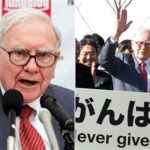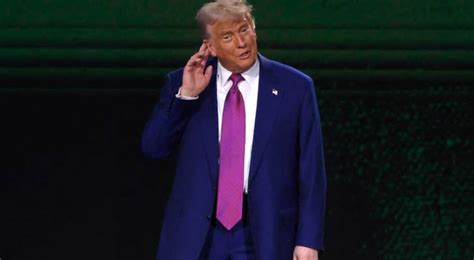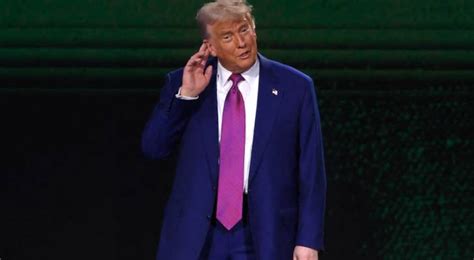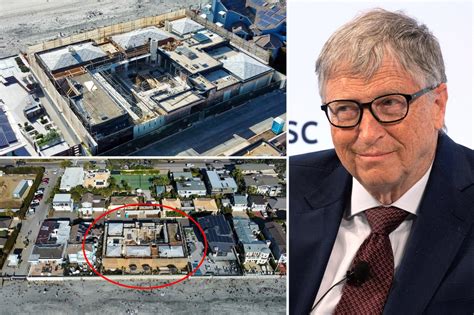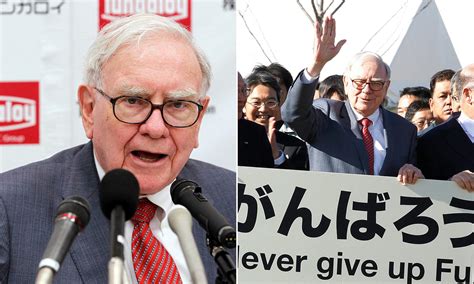
Warren Buffett’s Berkshire Hathaway trimmed its stake in Apple by $26 billion during the first quarter of 2024, while significantly boosting its investment in energy company Occidental Petroleum, signaling a potential shift in investment strategy amid concerns about market valuations. This move, revealed in Berkshire Hathaway’s latest 13F filing with the Securities and Exchange Commission, has sparked debate among analysts and investors about Buffett’s market outlook and potential future investments.
Berkshire Hathaway, renowned for its long-term investment approach, disclosed that it reduced its Apple holdings by approximately 13%, selling 116 million shares. Despite the substantial reduction, Apple remains Berkshire’s largest holding, valued at approximately $135.4 billion as of March 31. Buffett has long praised Apple’s consumer loyalty and its CEO, Tim Cook, recognizing its significance in Berkshire’s portfolio. During Berkshire Hathaway’s annual shareholder meeting, Buffett emphasized that Apple is an “even better business” than any they fully own and that he expects Apple to remain their largest investment “at the end of this year.” He described the share reduction as stemming from capital gains tax considerations.
Concurrently, Berkshire Hathaway increased its stake in Occidental Petroleum. The company added 2.9 million shares, bringing its total ownership to 246.7 million shares, worth approximately $15.3 billion. This move reinforces Berkshire’s increasing involvement in the energy sector. In addition to common shares, Berkshire holds warrants to purchase another 83.9 million shares of Occidental at $59.62 per share. Buffett has been consistently increasing his stake in Occidental, viewing it as a strategic play on the future of energy.
The shift in Berkshire Hathaway’s portfolio comes at a time when many analysts are voicing concerns about potentially overvalued market conditions. The S&P 500 has been trading near all-time highs, buoyed by enthusiasm surrounding artificial intelligence and strong corporate earnings. Buffett, known for his value investing philosophy, often seeks undervalued companies with strong fundamentals, and his recent actions may indicate a growing skepticism about the current market valuations.
Further portfolio adjustments included reducing holdings in Paramount Global, selling off the remaining shares of insurer Globe Life, and trimming a stake in Sirius XM. Berkshire Hathaway also invested in Chubb, a move that Buffett had kept confidential, revealing a $6.7 billion stake in the insurance company.
Apple Stake Reduction: A Deeper Dive
The reduction of Apple shares has drawn particular attention due to Apple’s prominent position in Berkshire’s portfolio. Buffett has consistently lauded Apple, citing its strong brand, loyal customer base, and effective capital allocation strategies. Speaking at a previous shareholder meeting, Buffett said, “I don’t think of Apple as a stock. I think of it as our third business.”
Despite selling a portion of its Apple shares, Berkshire Hathaway remains Apple’s largest shareholder. The decision to trim the stake appears to be motivated primarily by tax considerations and prudent portfolio management rather than a fundamental change in Buffett’s positive view of the company.
Analysts suggest that Berkshire may be rebalancing its portfolio to diversify its holdings and capitalize on other investment opportunities. The move also aligns with Buffett’s strategy of holding a significant cash reserve, which stood at a record $189 billion at the end of the first quarter. This cash position provides Berkshire with considerable flexibility to make opportunistic investments during market downturns or to acquire attractive businesses.
Occidental Petroleum: An Expanding Energy Play
Buffett’s increasing investment in Occidental Petroleum underscores his belief in the long-term viability of the energy sector. Occidental, a major player in oil and gas exploration and production, has attracted Buffett’s attention due to its strategic assets and management team. Berkshire Hathaway began investing in Occidental in 2019 during the company’s acquisition of Anadarko Petroleum.
Buffett has consistently praised Occidental’s CEO, Vicki Hollub, for her leadership and strategic vision. He views Occidental as a well-managed company with significant growth potential. During the shareholder meeting, Buffett highlighted the importance of energy independence and the role of companies like Occidental in ensuring a stable energy supply.
Berkshire Hathaway’s ownership stake in Occidental has fueled speculation about a potential takeover. While Buffett has not explicitly stated his intention to acquire the entire company, his increasing involvement suggests a strong conviction in Occidental’s long-term prospects.
Market Valuation Concerns and Strategic Shifts
Berkshire Hathaway’s portfolio adjustments come against a backdrop of rising concerns about market valuations. The S&P 500 has surged in recent months, driven by optimism about artificial intelligence, strong corporate earnings, and expectations of interest rate cuts by the Federal Reserve. However, some analysts caution that valuations may be stretched, and the market could be vulnerable to a correction.
Buffett has often expressed skepticism about investing in overvalued markets. His value investing philosophy emphasizes buying companies at a discount to their intrinsic value. By reducing exposure to high-flying stocks like Apple and increasing investments in sectors like energy, Berkshire may be positioning itself for a more defensive stance in anticipation of a potential market downturn.
The significant cash pile that Berkshire Hathaway is holding further supports this view. Buffett has historically used large cash reserves to capitalize on market dislocations and acquire undervalued assets. This strategy has proven highly successful over the years, allowing Berkshire to generate substantial returns during periods of market turmoil.
Chubb Investment: A New Insurance Bet
One of the more intriguing developments in Berkshire Hathaway’s portfolio is the newly revealed $6.7 billion stake in Chubb, an insurance company. Buffett had previously kept this investment confidential, taking advantage of regulatory provisions that allow investors to delay disclosure of significant holdings under certain circumstances.
The investment in Chubb aligns with Berkshire Hathaway’s long-standing interest in the insurance industry. Berkshire owns several major insurance companies, including GEICO, Berkshire Hathaway Reinsurance Group, and National Indemnity Company. The addition of Chubb further strengthens Berkshire’s position in the insurance market.
Chubb is a global insurance company offering a wide range of products and services, including property and casualty insurance, accident and health insurance, and reinsurance. The company has a strong reputation for underwriting excellence and risk management.
Paramount Global and Other Portfolio Adjustments
In addition to the major changes in Apple and Occidental Petroleum, Berkshire Hathaway also made several other notable adjustments to its portfolio. The company significantly reduced its stake in Paramount Global, reflecting concerns about the media industry and the challenges facing traditional entertainment companies. Berkshire also completely sold off its remaining shares of insurer Globe Life and trimmed its stake in Sirius XM.
These adjustments highlight Berkshire Hathaway’s active portfolio management and its willingness to adapt to changing market conditions. Buffett and his investment team continuously evaluate their holdings and make adjustments based on their assessment of the underlying businesses and the overall market environment.
Berkshire Hathaway’s Enduring Legacy
Berkshire Hathaway remains one of the world’s most admired and closely followed investment companies. Buffett’s investment decisions are often seen as a bellwether for the market, and his pronouncements are closely scrutinized by investors around the world.
Despite his advancing age, Buffett continues to play an active role in managing Berkshire Hathaway’s investments. He is supported by a team of talented investment managers, including Ted Weschler and Todd Combs, who are responsible for overseeing a portion of Berkshire’s portfolio.
Berkshire Hathaway’s enduring success is a testament to Buffett’s value investing philosophy and his unwavering commitment to long-term investing. The company’s diversified portfolio, strong balance sheet, and disciplined approach to capital allocation have enabled it to generate consistently strong returns over the years.
Implications for Investors
Berkshire Hathaway’s recent portfolio adjustments offer valuable insights for investors. The reduction in Apple shares highlights the importance of diversification and the need to rebalance portfolios periodically. The increased investment in Occidental Petroleum underscores the potential of the energy sector and the value of investing in well-managed companies with strategic assets. The new stake in Chubb illustrates the attractiveness of the insurance industry and the potential for long-term growth in this sector.
More broadly, Berkshire Hathaway’s actions serve as a reminder of the importance of value investing, patience, and a long-term perspective. Buffett’s success is based on his ability to identify undervalued companies with strong fundamentals and to hold those investments for the long term.
Frequently Asked Questions (FAQ)
1. Why did Berkshire Hathaway sell a portion of its Apple shares?
Berkshire Hathaway reduced its Apple holdings primarily due to capital gains tax considerations and prudent portfolio management. While the company remains bullish on Apple’s long-term prospects, the sale allowed Berkshire to realize some gains and diversify its portfolio. Buffett stated he expects Apple to remain their largest investment “at the end of this year”.
2. What is the significance of Berkshire Hathaway’s increasing investment in Occidental Petroleum?
The increasing investment in Occidental Petroleum reflects Berkshire Hathaway’s belief in the long-term viability of the energy sector and Occidental’s strong management team, led by CEO Vicki Hollub. Buffett views Occidental as a well-managed company with significant growth potential and a strategic player in ensuring a stable energy supply. It also fuels speculation that Berkshire might eventually acquire the entire company.
3. How does Berkshire Hathaway’s current cash position influence its investment strategy?
Berkshire Hathaway’s large cash reserve, which stood at $189 billion at the end of the first quarter, provides the company with considerable flexibility to make opportunistic investments during market downturns or to acquire attractive businesses. This strategy has historically proven successful for Berkshire, allowing it to generate substantial returns during periods of market turmoil.
4. What prompted Berkshire Hathaway to invest in Chubb insurance company?
The investment in Chubb aligns with Berkshire Hathaway’s long-standing interest in the insurance industry, where it already has significant holdings, including GEICO. Chubb is a global insurance company with a strong reputation for underwriting excellence and risk management, making it an attractive addition to Berkshire’s insurance portfolio.
5. What lessons can investors learn from Berkshire Hathaway’s recent portfolio adjustments?
Investors can learn several key lessons, including the importance of diversification, the need to rebalance portfolios periodically, the potential of certain sectors like energy and insurance, and the overall value of a long-term investment perspective based on value investing principles. Berkshire’s moves underscore the importance of identifying undervalued companies with strong fundamentals and holding those investments for the long term.
Additional Analysis and Background:
The Buffett Indicator:
One metric frequently cited in connection with Buffett’s market views is the “Buffett Indicator,” which compares the total market capitalization of all U.S. publicly traded companies to the country’s gross domestic product (GDP). A high ratio suggests the market is overvalued, while a low ratio suggests it is undervalued. As of the time of the article, this indicator has been flashing warning signs, reinforcing the idea that Buffett is being cautious in a potentially frothy market.
Berkshire’s Succession Planning:
While Buffett remains at the helm, succession planning at Berkshire Hathaway is always a topic of discussion. Greg Abel, currently Vice Chairman of Non-Insurance Operations, is widely considered to be Buffett’s successor as CEO. Abel’s operational expertise and understanding of Berkshire’s diverse businesses make him a logical choice. The portfolio management responsibilities, however, are likely to continue being shared among Weschler, Combs, and potentially others, even after Buffett’s departure.
Impact of Interest Rates:
The Federal Reserve’s interest rate policies play a significant role in Berkshire Hathaway’s investment decisions. High interest rates can make bonds and other fixed-income investments more attractive, potentially leading Berkshire to allocate more capital to these assets. Conversely, low interest rates can push investors towards equities, creating a more challenging environment for value investors like Buffett, who seek attractively priced opportunities. The uncertainty surrounding future interest rate movements adds another layer of complexity to Berkshire’s investment strategy.
The Future of Energy and Occidental Petroleum:
Buffett’s bullish stance on Occidental Petroleum reflects a broader view on the evolving energy landscape. While renewable energy sources are gaining traction, oil and gas are expected to remain crucial components of the global energy mix for decades to come. Occidental’s focus on carbon capture and sequestration technologies may also align with Buffett’s long-term investment horizon, as these technologies could play a significant role in mitigating climate change. Occidental’s strategic positioning in the Permian Basin, a major oil-producing region, further enhances its appeal as a long-term investment.
The Tech Sector and Berkshire Hathaway:
Despite reducing its stake in Apple, Berkshire Hathaway remains a significant investor in the technology sector. In addition to Apple, Berkshire holds investments in other tech companies, though none are as substantial. Buffett’s initial reluctance to invest in tech stocks stemmed from his limited understanding of the industry and its rapidly changing dynamics. However, his view evolved over time, particularly as he recognized the enduring value and brand loyalty associated with companies like Apple. The reduced Apple stake suggests a rebalancing rather than a complete rejection of the tech sector.
The Insurance Business and Berkshire’s Competitive Advantage:
Berkshire Hathaway’s insurance operations provide a significant source of “float,” which is the money collected from premiums that has not yet been paid out in claims. This float allows Berkshire to invest billions of dollars in other businesses and assets, generating additional returns. The company’s disciplined underwriting practices and strong capital base give it a competitive advantage in the insurance market. The addition of Chubb further strengthens Berkshire’s position in this lucrative industry.
The Significance of 13F Filings:
Berkshire Hathaway’s 13F filings are closely watched by investors because they provide a snapshot of the company’s portfolio holdings. These filings are required by the Securities and Exchange Commission (SEC) and must be submitted within 45 days of the end of each quarter. While 13F filings offer valuable insights, they only reflect a portion of Berkshire Hathaway’s total investments. The company also makes substantial investments in privately held businesses and other assets that are not disclosed in 13F filings.
The Impact of AI on Investing:
The rise of artificial intelligence (AI) is transforming the investment landscape. AI-powered tools are being used to analyze vast amounts of data, identify investment opportunities, and automate trading strategies. While Buffett has expressed skepticism about some aspects of AI, he has also acknowledged its potential to disrupt various industries. It remains to be seen how AI will ultimately impact Berkshire Hathaway’s investment approach, but the company is likely to adapt to the changing environment.
Berkshire Hathaway’s Annual Meeting:
Berkshire Hathaway’s annual shareholder meeting is one of the most highly anticipated events in the investment world. The meeting attracts thousands of attendees who come to hear Buffett and his longtime business partner, Charlie Munger, share their insights on the economy, the markets, and the future of Berkshire Hathaway. The meeting is known for its informal atmosphere, its emphasis on long-term investing, and its avoidance of Wall Street hype.
Challenges Facing Berkshire Hathaway:
Despite its remarkable track record, Berkshire Hathaway faces several challenges. One challenge is finding sufficiently large investment opportunities to deploy its vast capital base. As the company has grown, it has become increasingly difficult to identify undervalued companies that can meaningfully move the needle. Another challenge is maintaining its competitive advantage in a rapidly changing world. The company must adapt to new technologies, evolving consumer preferences, and increasing regulatory scrutiny.
The Importance of Value Investing:
Buffett’s success is largely attributed to his adherence to value investing principles. Value investing involves buying companies at a discount to their intrinsic value, based on a thorough analysis of their financial statements, management team, and competitive position. This approach requires patience, discipline, and a willingness to go against the crowd. Value investing has fallen out of favor in recent years as growth stocks have outperformed, but Buffett remains a steadfast advocate of this time-tested strategy.
Conclusion:
Berkshire Hathaway’s recent portfolio adjustments reflect a cautious approach to the current market environment. The reduction in Apple shares, the increased investment in Occidental Petroleum, and the new stake in Chubb all suggest a desire to diversify the portfolio, capitalize on undervalued opportunities, and prepare for a potential market downturn. While the future is uncertain, Berkshire Hathaway’s disciplined approach to investing and its strong financial position should enable it to continue generating strong returns for its shareholders over the long term. The moves underscore Buffett’s enduring principles of value investing and strategic capital allocation in an evolving economic landscape. The careful balancing act between maintaining core holdings and seizing new opportunities demonstrates a keen awareness of both present market conditions and long-term economic trends, reinforcing Berkshire Hathaway’s position as a bellwether for the investment world. The market will continue to analyze and interpret these moves, seeking further clues to Buffett’s perspective on the economy and investment opportunities ahead.





